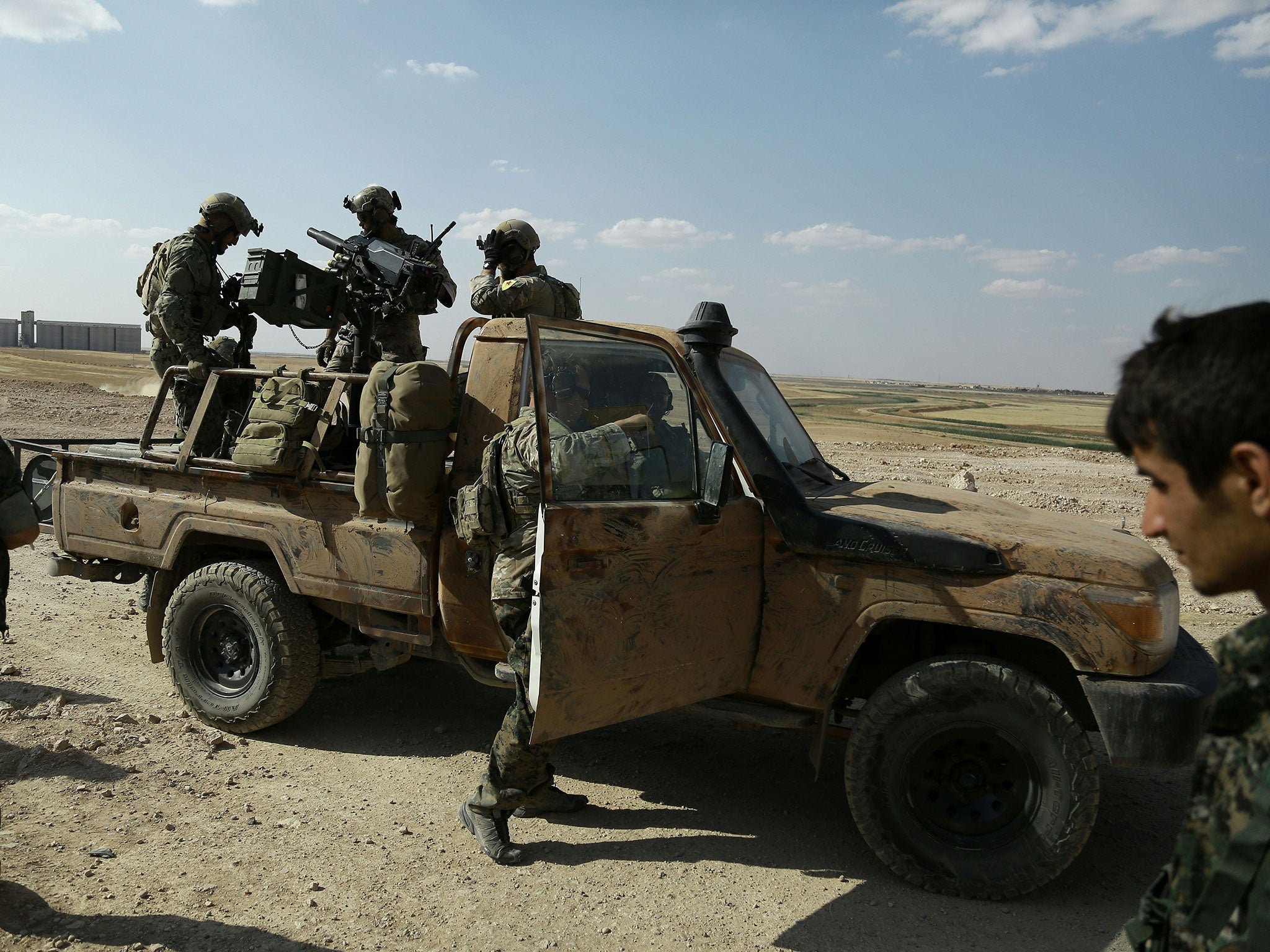Top Syrian Kurdish commander Abu Layla killed by Isis sniper fire

Your support helps us to tell the story
From reproductive rights to climate change to Big Tech, The Independent is on the ground when the story is developing. Whether it's investigating the financials of Elon Musk's pro-Trump PAC or producing our latest documentary, 'The A Word', which shines a light on the American women fighting for reproductive rights, we know how important it is to parse out the facts from the messaging.
At such a critical moment in US history, we need reporters on the ground. Your donation allows us to keep sending journalists to speak to both sides of the story.
The Independent is trusted by Americans across the entire political spectrum. And unlike many other quality news outlets, we choose not to lock Americans out of our reporting and analysis with paywalls. We believe quality journalism should be available to everyone, paid for by those who can afford it.
Your support makes all the difference.A top Syrian Kurdish commander has died, several days after sustaining injuries during a US-backed campaign to unseat Isis from its Raqqa stronghold.
Abu Layla, who commanded a brigade inside the predominantly-Kurdish Syrian Democratic Forces (SDF), was hit by sniper fire on the outskirts of Manbij, an Isis-controlled area which is key to the supply route between the Turkish border and Raqqa.
He was evacuated by US forces to a hospital in the Iraqi Kurdish city of Sulaymaniyah, where he died.
His death has been honoured by Kurdish supporters, with many sharing the contents of a letter he wrote to his daughter in which he said it was his duty to “defend, work and fight” Isis to protect her future.
The commander fought against militants in Kobani in early 2015, according to the Britain-based Syrian Observatory for Human Rights.
Those battles, the first major setback to the IS advance in northern Syria, were seen as instrumental in securing US support for Kurdish forces in the country's multi-layered conflict.
The SDF are now advancing on Manbij, 72 miles to the north-west of Raqqa, as Syrian government forces backed by Iranian, Lebanese and Russian firepower, advance on the capital of the so-called Islamic State from the south. It is unclear whether the twin offensives were coordinated.
Pro-government forces reached within 25 miles of the Tabqa Air Base, to the west of Raqqa, according to the Observatory. Isis militants captured the base from the government in 2014, killing scores of captured soldiers.
The media arm of Lebanon's Hezbollah group, which is fighting alongside government forces, said the Syrian army took a small village 31 miles to the south-west of Tabqa air base.
The twin offensive on IS-strongholds in Syria coincides with a military operation in neighbouring Iraq on Fallujah, one of the most important cities still held by the militant group.
Government and Russian airstrikes meanwhile killed at least 23 people in opposition-held parts of Aleppo, once Syria's largest city and former commercial capital, activists said, and killed or wounded dozens more in Idlib, a rebel-held city in the country's north-west.
The Civil Defence, a first responder group that operates in rebel-held areas, reported 50 airstrikes in Aleppo on Sunday.
The Local Coordination Committees, an activist network, said the strikes killed at least 30 people. The Syrian Observatory for Human Rights put the toll at 23.
Activists reported that a war plane had crashed south of Aleppo. It was not immediately clear whether the plane had malfunctioned or had been shot down.
The Local Coordination Committees network said rebels shot the plane down near Khalasa, where a coalition of opposition fighters and al-Qaida-linked insurgents have eroded government control over the past two months.
Aleppo has been divided between government and opposition control since 2012.
AP
Join our commenting forum
Join thought-provoking conversations, follow other Independent readers and see their replies
Comments